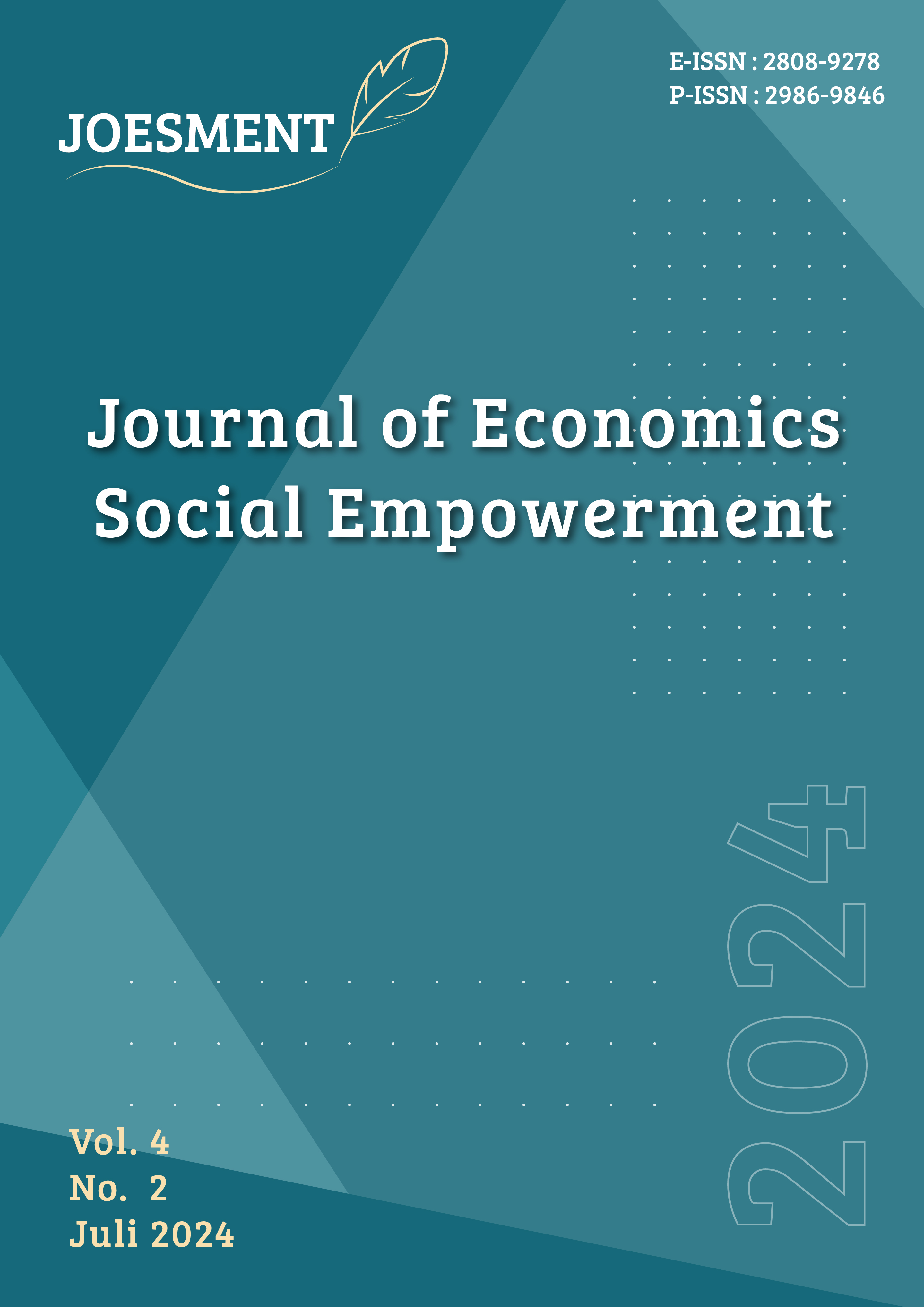Pengaruh Efek Sosial dan Ekonomi Terhadap Kemiskinan di Nusa Tenggara Timur
Keywords:
Poverty; Sustainable Development Goals (SDGs); Social Influence; Equitable Development;Abstract
Development in Indonesia aims to create a just, prosperous, and independent society, with the government adopting the Sustainable Development Goals (SDGs) to ensure equitable national development. This research uses a quantitative method. The findings on the success of the Sustainable Development Goals Without Poverty in East Nusa Tenggara conclude that mobile phones play an important role in reducing poverty by providing access to new opportunities. Smoking does not significantly affect poverty; however, increasing the gross enrollment rate has proven effective in reducing poverty. Income levels also play a significant role. Therefore, coordinated efforts are needed to address poverty by focusing on these factors
Downloads
Downloads
Published
How to Cite
Issue
Section
License
Copyright (c) 2024 Tasya Marsela

This work is licensed under a Creative Commons Attribution-NonCommercial-ShareAlike 4.0 International License.
Authors who publish with this journal agree to the following terms:
- For all articles published in the JOESMENT (Journal of Economic and Social Empowerment), copyright is retained by the authors. Authors give permission to the publisher to announce the work with conditions. When the manuscript is accepted for publication, the authors agree to the automatic transfer of non-exclusive publishing rights to the publisher.
- Authors retain copyright and grant the journal right of first publication with the work simultaneously licensed under a Creative Commons Attribution-NonCommercial-ShareAlike 4.0 International License that allows others to share the work with an acknowledgement of the work's authorship and initial publication in this journal.
- Authors are able to enter into separate, additional contractual arrangements for the non-exclusive distribution of the journal's published version of the work (e.g., post it to an institutional repository or publish it in a book), with an acknowledgement of its initial publication in this journal.
- Authors are permitted and encouraged to post their work online (e.g., in institutional repositories or on their website) prior to and during the submission process, as it can lead to productive exchanges, as well as earlier and greater citation of published work (See The Effect of Open Access).
This is an open access article and licensed under a Creative Commons Attribution-NonCommercial-ShareAlike 4.0 International License



















